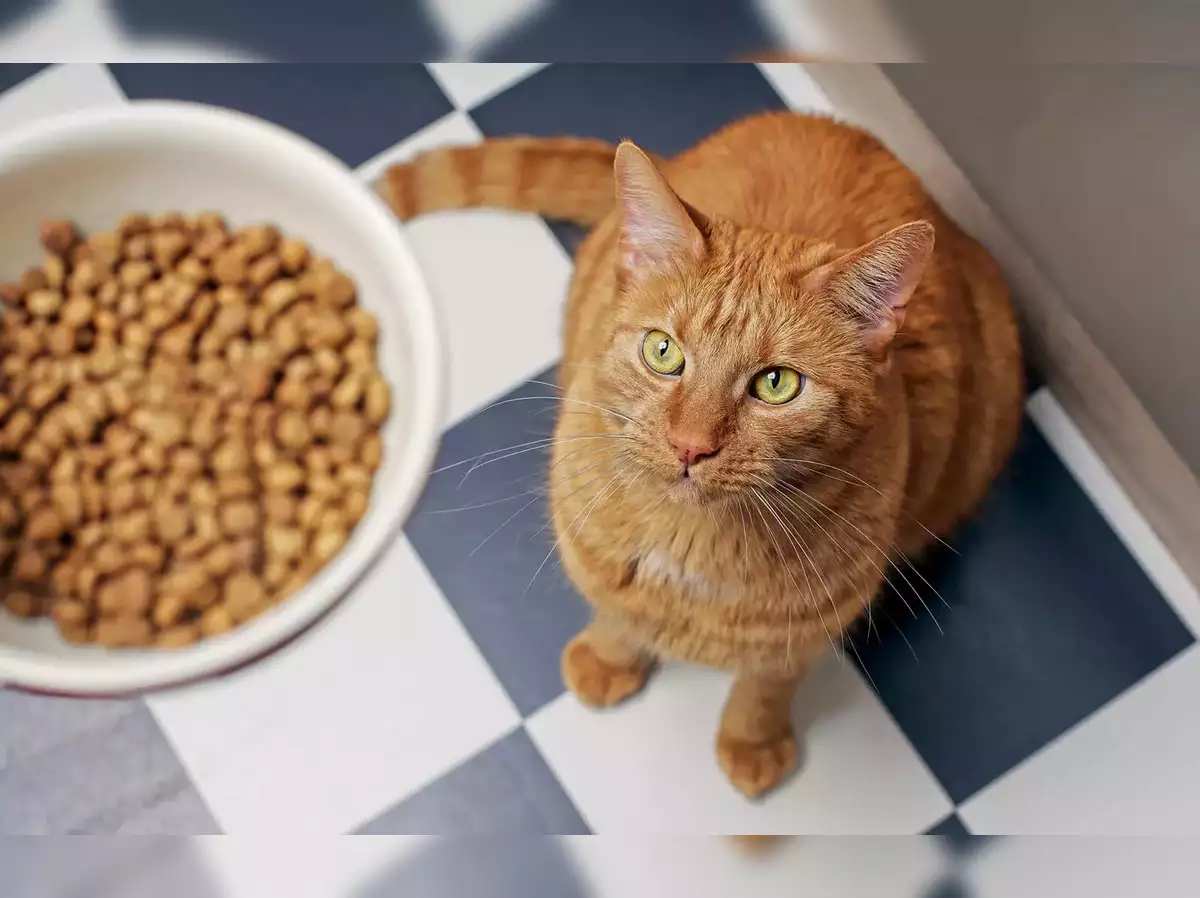- Commercial Cat Food:
- Dry Food (Kibble): Dry cat food is convenient and often more affordable than wet food. Look for high-quality brands that list meat as the main ingredient and avoid those with excessive fillers, artificial additives, or preservatives.
- Wet Food (Canned or Pouched): Wet cat food provides hydration and can be more palatable for some cats. Choose varieties that are high in protein and low in carbohydrates. Wet food can be especially beneficial for cats with dental issues or those prone to urinary tract problems.
- Raw Food Diet:
- Some cat owners choose to feed their cats a raw food diet, which typically consists of raw meat, bones, and organs. Proponents of raw feeding believe it closely mimics a cat’s natural diet in the wild and provides optimal nutrition. However, it’s essential to consult with a veterinarian or feline nutritionist before transitioning your cat to a raw diet to ensure it meets their nutritional needs and minimizes the risk of foodborne illness.
- Some cat owners choose to feed their cats a raw food diet, which typically consists of raw meat, bones, and organs. Proponents of raw feeding believe it closely mimics a cat’s natural diet in the wild and provides optimal nutrition. However, it’s essential to consult with a veterinarian or feline nutritionist before transitioning your cat to a raw diet to ensure it meets their nutritional needs and minimizes the risk of foodborne illness.
- Homemade Diets:
- Homemade diets can be an option for cat owners who prefer to prepare their cat’s food at home. However, it’s crucial to ensure the diet is nutritionally balanced and meets all of your cat’s dietary requirements. Consult with a veterinarian or veterinary nutritionist to formulate a homemade diet plan tailored to your cat’s specific needs.
- Specialty Diets:
- Some cats may require specialty diets to address specific health concerns, such as weight management, urinary tract health, or food allergies. Prescription diets prescribed by a veterinarian are available for these purposes and may be necessary for managing certain medical conditions.
Regardless of the type of food you choose for your cat, it’s essential to provide a balanced diet that meets their nutritional needs. Always provide fresh, clean water for your cat to drink, and monitor their food intake to prevent obesity or underfeeding. Additionally, avoid feeding your cat foods that are toxic to cats, such as chocolate, onions, garlic, and grapes. If you have any concerns about your cat’s diet or nutritional requirements, consult with your veterinarian for personalized recommendations.






